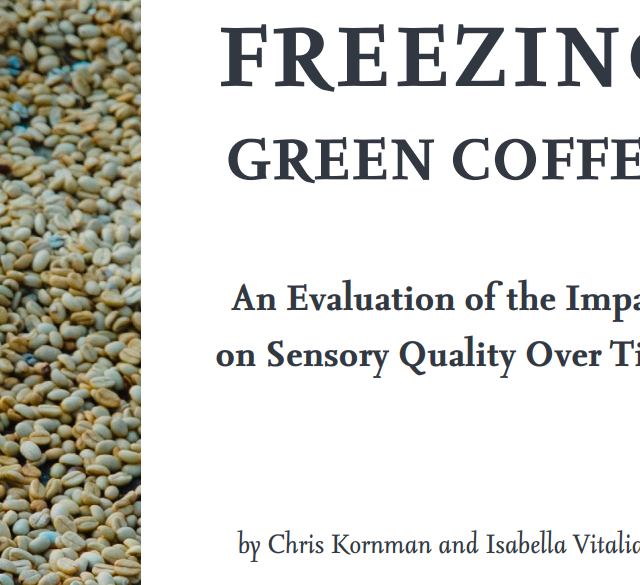Royal sources coffee from every corner of the globe and I am always amazed at how much all of us at origin have in common despite the vast distances between us. I recently interviewed two women working in the coffee industry, one from Brazil and one from Ethiopia. Miriam Monteiro de Aguiar from Brazil and Hirut Berhanu from Ethiopia both own export companies in their respective origins. Their responses were so complementary that it made sense to put them together here.
How did you start working in coffee?
Miriam: I was born in a small city named Santo Antonio do Amparo, in Minas Gerais, Brazil. I grew up on my family’s coffee farm. This was my universe, all the time related to coffee. The bad times and economically prosperous times of coffee were strongly connected with our childhood experience. The gifts we received depended on coffee prices.
Hirut: Our family being from Yirgacheffee, we have been in the coffee business for as long as I can remember, so it’s a family business.
What is your favorite part about harvesting coffee?
Miriam: The harvest always was the best part of our experience. One of my oldest memories was the small bamboo basket made exclusively for me. I used to harvest with people after school. We always celebrated the end of the harvest among adults and children with play and music. The large coffee wash tanks were our swimming pools.
Hirut: Yirgacheffee is a place of coffee, so the region comes alive during the harvest and you can see the excitement in people’s eyes and without question seeing natural processed coffees drying in the African wooden bed.
As a woman working in coffee is there anything unique about your experiences?
Miriam: As a woman in coffee, the most precious thing is having the opportunity to share experiences and grow in business alongside other women. And this has significantly changed in the coffee value chain. Women are making efforts to get better opportunities, knowledge, make money and develop a more sustainable and interesting business environment that connects with the challenges of the twenty-first century.
Hirut: Yes, it’s without a question a male dominated industry which uses women mainly as a lower level labor force. It is good for a change to see a woman in charge. I was actually one of the first women to own their own coffee station and start producing my own coffee.

Please describe a typical work day for you.
Miriam: Recently I created my exporting company to export Cachoeira Coffees directly, and also export other sustainable, organic, and women produced coffees from my community. I spend many hours at the office on the farm and I really miss spending more time in the fields, near nature. I wake up at six, I do my Tai Chi and go to the office until lunch time. I return a half hour later and work until five PM. Three days a week I stay in the city, working from home and spending time with my daughters.
Hirut: Depending on whether I am in Addis Ababa or Yirgacheffee there are different things to follow up on. If I am in Addis Ababa it would include meeting coffee clients, running our coffee shop, coffees being processed for export, cupping and quality control, and the daily coffee trade activity. If I am in Yirgacheffee, I meet guests and visit farmers who grow our coffee, check daily market prices, coffee collection from our farmers, coffee processing for what we have collected, and constantly follow up on quality.
What successes and challenges do you experience as a woman working in the specialty coffee market?
Miriam: I´ve been successful booking and exporting coffees directly from our farm. So, we can control the whole process. The challenge is to impact other women producers’ lives and have a coffee production model with more sustainable practices.
Hirut: Being a woman in specialty coffee can be a double-edged sword, on the one hand there are people that want to celebrate the fact that you are a woman in coffee and work with you and support you by promoting our coffee and giving additional value to our coffee. On the other hand, there are people that blindly think we can’t do and deliver the same things our male counterparts do and don’t even want to give us a chance.
What are your long-term goals in the coffee industry?
Miriam: My long-term goal is to create a sustainable coffee value chain with my producer partners and clients. And increase quality to add value for the coffee producers.
Hirut: We want to focus on quality rather than quantity and produce coffees that can be listed as the best in the world. Ethiopia has the most variety of coffees with the highest qualities but due to lack of knowledge the quality is lost in processing. I hope to be able to change that.
What is your opinion about the prices of coffee in the international market?
Miriam: The price of international coffee is critical. The impact is very bad for our business because costs normally go higher year by year and the prices don’t cover the costs for regular coffees.
Hirut: It’s a risky business so some years we may come out with losses after all our hard work because of the market.

What is the most important information for you about green coffee buyers?
Miriam: It is important to know our clients’ business and how they appreciate our coffee. Buyers ask about quality, quantity and prices. I would like to discuss the price margins and have direct contact with roaster clients.
Hirut: It is important to have their feedback because they are the ones that deal with roasters and end buyers. Green buyers ask for better quality and lower prices. We want to know how to increase the value of our coffee for them. We also want to know how we can work together and coordinate more.

How is climate change influencing coffee production?
Miriam: We believe sustainable agricultural practices are necessary to improve the soil life and to conserve the soil moisture. We think the quantity of green fertilizers and organic material in the soil along with shade can mitigate the damages of climate change.
Hirut: Coffee production volume is significantly impacted by the climate and what we have noticed in the past few years is a big swing in the rainy season and the production volume swings with the amount of rain we get. The past few years we have been dealing with a lot of inconsistency in production, so our risks have been increasing every year.
Have you ever tasted specialty coffee produced in another country or visited another coffee producing country?
Miriam: Fortunately, I’ve tasted different origins during the conferences and visited producing countries in Latin America. I have never visited any African and Asiatic origins. But, I love Ethiopian coffees.
Hirut: I haven’t visited other producing farms or anything like that, but I have cupped and tasted coffees from different countries. Some countries produce very good coffee and I have been impressed but I love our coffees.



